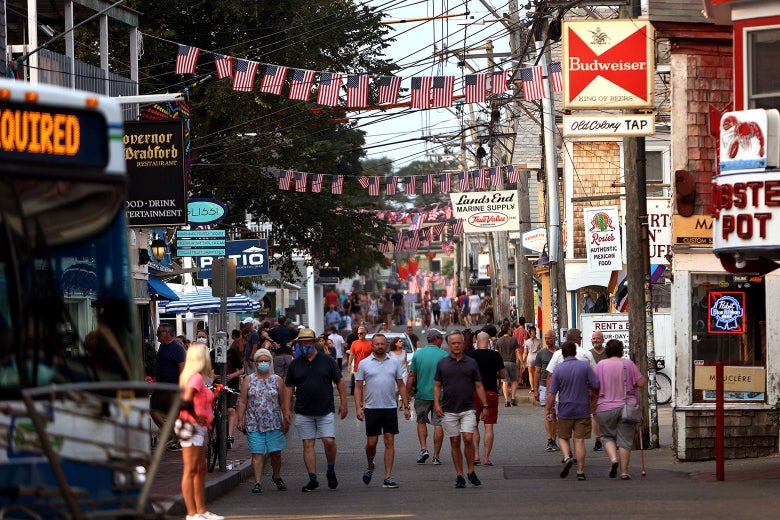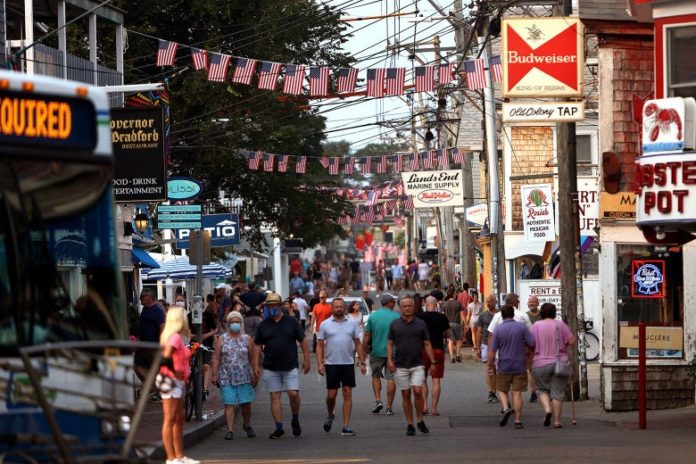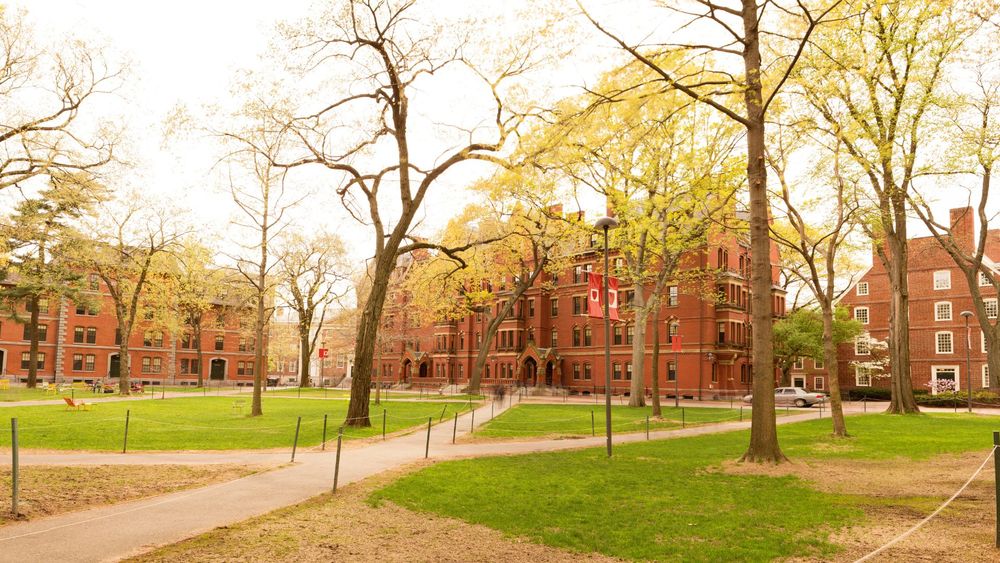
Coronavirus Diaries is a series of dispatches exploring how the coronavirus is affecting people’s lives.
Last Thursday, an internal slide presentation leaked from the Centers for Disease Control and Prevention revealed that the delta variant of the coronavirus is even more contagious than previously thought—more communicable than Ebola and the common cold, as spreadable as the chickenpox. While vaccines appear to remain strong against the virus, new evidence suggests that fully vaccinated people with so-called breakthrough infections may be every bit as infectious as those yet to receive their shots, even if their own cases remain relatively mild. According to a report the agency released on Friday, the CDC’s latest findings were based on a July 4 COVID-19 outbreak in queer mecca Provincetown, Massachusetts, where among a cluster of 469 (with no deaths) at the time of study, an astonishing three-quarters of the infected had been fully vaccinated. As of July 31, the P-Town outbreak had ballooned to 965 cases.
Advertisement
Advertisement
Advertisement
I was one of them.
This year, my partner and I were among thousands from all over the country who descended on Provincetown in early July. As for many, this was to be our government-approved “hot vax summer,” when masks came off and inhibitions could finally breathe again. We were going to get our dance on, and when we arrived out at the beautiful tip of Cape Cod, the mood was aptly exuberant. Indoor restaurant reservations had to be made more than a week in advance. Revelers crowded maskless into iconic dance clubs like the Atlantic House and the Crown & Anchor. “The last time I saw this kind of joy in P-Town,” a friend quipped, “was the year Truvada [the HIV prevention drug] came out.”
Advertisement
It was about halfway through our weeklong stay when one vaccinated friend from New York City began to report not feeling well. Unable to stop coughing, he and his boyfriend drove to Outer Cape Health Services, where he tested positive for COVID and immediately fled the cape. Soon after that, I began to hear whisperings—whether at the Mussel Beach gym or traditional “high tea” gatherings by the pool at the Boatslip Resort—of a “gay cough” circulating among some out-of-towners. Although the atmosphere in Provincetown remained celebratory, I began to sense, and eventually share, a certain dread; it stayed with me until my departure the following weekend.
Advertisement
Within a day or two of my return to New York, I received eight Instagram DMs from P-Town acquaintances who had scattered back across the country. All of them bore similar news. “We’re not feeling well,” went one message from a (vaccinated) San Francisco–based couple. “We started getting flu-like symptoms on Friday night. We thought all the partying and late nights, but symptoms are getting worse, and we just lost our sense of smell.”
Advertisement
Days later, I awoke with chills of my own, backaches, and crippling fatigue. When my sense of smell vanished later that afternoon—I dutifully circled around the apartment and whiffed each candle, without success—I turned up at CityMD and tested positive on a rapid test. I’d received my Moderna vax in April.
Being in quarantine can be a lonely endeavor, and yet as I recuperated, I found myself part of a growing cohort of friends who were also in recovery from Provincetown. In my gay networks on social media, I kept hearing more and more stories: the guy who hadn’t left his bed since his return to Boston; the couple who had reported to the testing clinic in P-Town and been greeted by a long, long line. In two days, I could count on both hands the number of positive, vaccinated cases I’d heard of. In three, I estimated that I knew—no exaggeration—at least two dozen people, all vaccinated, all sick with COVID.
Advertisement
Advertisement
“What on earth?” I wondered aloud online, as we all contacted one another about new breakthrough cases and compared our symptoms at virtual book club meetings. What did it mean, I asked the contact tracer who called me two days after I first presented symptoms, that I’d come down with COVID and my partner, also vaccinated, hadn’t? For months, the CDC had advised us that breakthrough cases among the vaccinated were rare events, that even if sickened by delta, we should be only mildly symptomatic—“mild,” of course, losing its meaning when you can’t taste your food for more than a week. If I’d known the truth of how awful a breakthrough infection could be, I might have thought twice about hitting the cape in the first place.
Advertisement
The CDC’s misleading promises of safety aside, it wasn’t just my infection that felt like a betrayal. More than a few of my friends surprised me with gallows humor about the AIDS crisis and the outbreak, theorizing that it’d been too much sex, too many drugs—too much “fun”? —that we might blame for our predicament. Suddenly, my illness was being casually equated with promiscuity, as if personal behavior, and not poor public health guidance and quickly shifting science, was the culprit. Still, if being at the center of this latest chapter of the COVID story had chipped away at my trust in the CDC’s ever-evolving guidelines, it had also offered us gay men a glimpse of an important facet of our history, exemplified most powerfully in the legendary self-advocacy of ACT UP: playing armchair scientist when institutional and social knowledge isn’t there for us, when it breaks down.
Advertisement
Forty years almost to the day after the New York Times first reported on the “rare cancer seen in 41 homosexuals,” here we were again, confused and angry participants in a public health emergency. Many of us began sounding the alarm just after the July Fourth holiday, and by midmonth the Massachusetts Department of Public Health had started collaborating with the CDC to track the new cluster. Around that same time, the CDC began asking for Provincetown positives to come forward with their stories. “I can’t believe we were joking about the ‘Fagbash variant’ a few weeks ago and now we are literally the case study for the variant,” a friend texted me in response to the CDC’s sudden interest, referencing a popular P-Town party. Those of us who reached out, I like to think, pushed our collective understanding of delta a step forward with our reporting.
Advertisement
Indeed, Dr. Celine Gounder, an infectious disease specialist at New York’s Bellevue Hospital Center, said as much to the New York Times. “This is one of the most impressive examples of citizen science I have seen,” she said. “The people involved in the Provincetown outbreak were meticulous in making lists of their contacts and exposures.”
Advertisement
Advertisement
I guess that’s something to be proud of. But it’s also a dispiriting wake-up call: In an era of constantly updated variants (“delta plus” has already been identified, like some new dystopian iPhone release), it appears that private citizens will have to rely, at least in part, on their own ability to research and reason their way to best practices. We’ve now learned that “life as normal” at this point in the pandemic was never realistic: There are still too many questions outstanding, too much residual uncertainty over long-term effects, or whether we can contract delta twice. “Hot vax summer” has become the summer of not knowing. And the fall? That’s even less certain.








